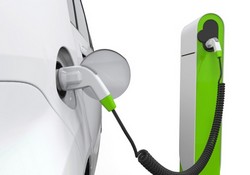Electric mobility in Europe receives a big boost
The EU-funded project ELECTROMOBILITY+(opens in new window) (ERA-NET plus on electromobility) identified the need to strongly embed electric mobility within EU Member States to decarbonise transport. To fund transnational research projects, ELECTROMOBILITY+ brought together the European Commission and ministries and funding agencies from 11 Member States. As part of the brokerage session, participants looking for partners had the opportunity to present their organisation profile and ideas for project proposals. In total, 40 proposals were submitted, which led to the funding of 18 research projects beginning in 2013. Thematic priorities included socioeconomic issues, technological strategies, and research and development. ELECTROMOBILITY+ monitored these research efforts along with national monitoring bodies. A mid-term event in 2014 provided an update on the progress of the projects. It also gave participants an opportunity to discuss the initiatives further and to identify linkages. Project results were made available during a final event in 2015 through presentations and posters. Project outcomes helped to significantly enhance knowledge on electric mobility and represent stepping stones for accelerating market uptake and rollout of electric mobility in Europe. Further, the work provided major support for the planning of future initiatives on electric mobility under existing and future EU Framework Programmes. The funded projects provided a variety of tools, scenarios, guidelines and models regarding electric mobility. Given that limited range is an important factor holding back widespread adoption of electric cars, efforts were aimed at exploring lightweight materials for batteries or innovative substances for supercapacitors that can offer a charging time of just a few minutes. Other research focused on optimising charging infrastructure or finding cost-effective routes to battery recycling. Simulating the electric vehicle performance in accidents was the focus of other studies, which ultimately led to the draft of guidelines for emergency and towing services. Simulation studies on the possible implications of plugging electric cars on the electricity grid were also performed. ELECTROMOBILITY+ transnational funding cooperation will ultimately lead to the development of a sustainable European research and innovation landscape for electric mobility in the coming decades. This will also result in significant knowledge gains, as well as potentially innovative products and services, thus boosting Europe's industrial competitiveness.



